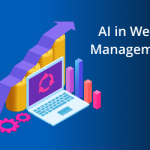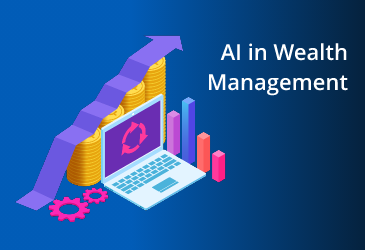Introduction
In the finance industry, artificial intelligence (AI) is bringing about significant changes, presenting new opportunities and efficiencies for investors. While AI may seem complex at first glance, understanding its fundamentals and how it can improve investment strategies can provide a valuable edge. This guide is designed to cover the basics of incorporating AI into investing, highlighting its benefits and providing practical steps to integrate AI into your investment approach.
What Does Artificial Intelligence in Investing Involve?
The use of artificial intelligence in finance entails leveraging algorithms and machine learning techniques to analyze data, identify patterns and make predictions or decisions that traditionally relied on human expertise. In the realm of investments, AI can streamline trading processes, optimize portfolios and offer valuable insights into market trends.
Various Types of AI Used in Investing
- Machine Learning is a subset of AI that involves training algorithms to learn from data and make predictions or decisions without explicit programming.
- Natural Language Processing (NLP) – This technology enables AI to interpret and understand human language, allowing it to analyze news articles, social media content and other text-based information for insights into market sentiments.
- Robotic Process Automation (RPA) is employed to automate repetitive tasks such as data entry or trade execution, freeing up investors to focus on making strategic decisions.
Benefits of AI in Investing
- Speed and Efficiency – AI can process large amounts of data faster than humans, leading to quicker decision making and implementation.
- Reduction of Human Bias – AI operates based on data, minimizing the emotional biases that often influence human investors.
- Cost Savings – By automating tasks, AI can reduce the need for expensive manual labor, resulting in lower overall investing costs.
Practical Tips
- Familiarize yourself with fundamental AI concepts as they relate to finance.
- Understand the various types of AI technologies used in investment.
- Recognize the benefits of integrating AI into your investment strategy.
The Transformative Role of AI in Investment Strategies
Algorithmic Trading is a prominent example of how AI is applied in investing. Algorithms can execute trades swiftly based on specific criteria such as price changes or market conditions, allowing for more precise timing and potentially higher returns.
Portfolio Optimization
AI can effectively optimize investment portfolios by analyzing historical data, market trends and individual investor preferences. When investing, it’s important to balance risk and reward, diversify your portfolio and adjust investments to maintain the desired asset mix.Sentiment analysis involves using artificial intelligence to assess market sentiments by examining various sources like news and social media. This information can help investors make well informed decisions by identifying potential market trends in advance. Predictive analytics is a valuable tool for investors as it enables them to predict future market movements based on historical data. Through predictive analytics, investors can gain insights into potential market shifts and adjust their strategies accordingly.
Some Practical Suggestions
- Explore algorithmic trading platforms that utilize AI for more efficient trade execution.
- Incorporate AI driven tools to enhance your investment portfolio.
- Use sentiment analysis tools to evaluate market sentiment and guide your decision-making process.
- Consider utilizing AI powered predictive analytics to anticipate market trends.
Getting Started with AI in Investing – Choosing the Right AI Tools
For beginners, starting with user friendly AI tools that align with your investment goals is crucial. Robo advisors, for instance, are AI based platforms that can manage your investments effectively with minimal intervention required from you. These platforms create diversified portfolios customized to your risk tolerance and financial objectives. When using AI for investing, it’s important to be mindful of any potential costs associated with certain tools. Take the time to understand these costs in relation to the benefits that AI driven investment platforms can provide.
To effectively integrate AI into your investment strategy, you should explore online courses and books that cover AI concepts in the finance field. Moreover, there are various platforms offering tutorials and webinars to help you kick start your journey.
Begin by using AI tools for smaller investment decisions or in simulated trading scenarios. This will allow you to understand how AI functions in a low-risk environment before incorporating it into your broader investment strategies.
If you feel unsure about navigating the world of AI on your own, consider seeking guidance from a financial advisor with expertise in AI driven investments. They can provide personalized recommendations and assist you in integrating AI into your investment portfolio.
Actionable Tips
- Start with user friendly AI tools like robo advisors.
- Familiarize yourself with the costs and benefits of different AI driven platforms.
- Educate yourself through courses and resources on utilizing AI in finance.
- Experiment with AI tools in low-risk situations before fully committing.
- Think about getting professional advice to guide your adoption of AI.
Ethical Considerations and Challenges
Data Privacy and Security; When using AI for investment purposes, it’s crucial to protect your data. Choose platforms that prioritize data privacy and comply with relevant regulations. Ensuring that AI systems are secure against breaches is essential for safeguarding the confidentiality of your financial information.
Algorithmic Bias
The success of AI algorithms depends on the quality of the data they are trained on. If the data contains biases, AI decisions may also be skewed, potentially resulting in suboptimal investment outcomes. It is important to recognize potential biases and choose platforms that prioritize transparency and fairness in their algorithms.
Regulatory Compliance
The use of AI in finance is subject to regulatory oversight. Make sure that any AI driven investment platform complies with all relevant regulations. Keeping up with regulatory changes is crucial as the legal landscape around AI in finance evolves continuously.
Practical Recommendations
- Prioritize data privacy and security when selecting AI platforms.
- Stay alert to possible biases in AI algorithms and opt for platforms known for their transparency.
- Verify that your AI driven investments meet applicable regulatory requirements.
- Stay informed about regulatory updates that impact AI in finance.
The Future of Artificial Intelligence in Investing
- Continuous Progress – Artificial intelligence technology is constantly advancing, with ongoing developments in machine learning, quantum computing and other areas poised to transform investment strategies. Keeping abreast of these innovations will enable you to adapt your approach and seize new opportunities.
- Increased Accessibility – As AI becomes more widespread, it will become increasingly accessible to individual investors.
The democratization of investment tools powered by AI will enable a broader spectrum of individuals to access sophisticated investment strategies that were once exclusive to large financial institutions.
Looking ahead, the future of investing is likely to revolve around a partnership between human expertise and AI capabilities. While AI excels in swift and precise data analysis and execution, human investors will continue to play a pivotal role in crafting strategies and making decisions.
Some Practical Recommendations
- Stay updated on emerging AI technologies and their influence on investments.
- Embrace AI driven tools as they become more widely available.
- Advocate for a collaborative approach that integrates your expertise with the potential of AI.
Conclusion
Embracing artificial intelligence in investing is no longer limited to tech savvy professionals. By arming themselves with the necessary knowledge and tools, newcomers can leverage AI to enhance their investment strategies, reduce biases and achieve long term financial success. By mastering the fundamentals of AI, exploring its practical applications and adopting a cautious yet forward thinking mindset, individuals can position themselves to thrive in an evolving financial environment.









